Computer numerical control (CNC) is a manufacturing process where tools and machinery are run using pre-programmed computer software.
The first precursor to a CNC machine was built in the 1950s, when Richard Kegg collaborated with MIT to create a numerical control (NC) milling machine. In the 1960s, NC machines evolved from a punch tape form of data storage to software programs.
Today, CNC machines use software and digitization of data to automate the control of machinery equipment.
What Is CNC?
CNC defines how each part of a machine operates to create parts. It is a process where tools and machinery such as grinders, mills, and lathes cut and finish prototype pieces that are used in products such as automobiles.
The software used in CNC machines is called “G-code.” Computer-aided design and manufacturing software is used to write programs in G-code.
What Is CNC Used For?
CNC is used to numerically control and manipulate complex machinery. These machine tools can include mills, lathes, welder, grinders, and routers. The computer program automates and monitors the movements of these machines as they transform the metal, wood, or plastic pieces.
- Create machine parts. CNC machines are used to create machine parts with precision.
- Create complex metal structures. Complex metal structures require heavy machinery to assemble and are not possible to build traditionally. Instead, CNC is used in the creation of these structures.
- Milling. Milling involves cutting and drilling materials such as metal, plastic, and wood using computerized controls.
- Drilling. Drilling requires the use of milling and lathes. Holes are usually drilled in metal, plastic, or wood to fit screws and bolts
- 3D. With the use of a powerful router and modern software, CNC can be used to create 3D projects from plastic and metal using 3D printers.
Types of CNC Machines
There is a wide range of CNC machines that can aid in the creation of machine parts and 3D-printed products. Below are some of the CNC machines that you will come across if you work in a machine shop.
Router
Routers are used to cut materials including wood, plastic, and metal. Once the user enters information into the router, it will cut the material according to the shape and size instructed.
Laser
Lasers are used to cut metal, plastic, or wood. Laser cutting uses compressed gas such as nitrogen and oxygen to aid in the cutting process.
Plasma
Plasma is used to cut metal or wood. The machine uses a plasma cutter torch that is controlled by a computer to penetrate metal or wooden sheets. Like laser cutting, plasma also uses gas to assist in the process. It requires less power compared to a router.
Lathe
A CNC lathe, or turning machine, allows machine operations such as turning and drilling to be carried out just like with a conventional lathe. It is used to produce cylindrical parts such as slots and threads.
Drill
Drills are used to make holes in pieces to prepare them for assembly. A CNC drill follows instructions to spin until the moving part comes into contact with a stationary part.
Learning CNC
CNC is not complicated to learn. The first step is to gain a fundamental knowledge of all the components involved. Once you have the basics down, you will be ready to move on.
How Long Does It Take to Learn CNC?
It requires several years of technical training to become a CNC machinist. If you are a total beginner, it may take about five years to become qualified.
If you are preparing for an entry-level job and already have some basic knowledge of CNC, then it can take as little as two years to learn. Remember that training is done on the side, so you will be required to invest extra time.
How to Learn CNC: Step-by-Step
Follow this step-by-step guide to begin your journey to mastering CNC.
- Enroll in a class. To learn CNC, the first step is to enroll in a course or a class. The minimum requirement for enrollment is a high school diploma.
- Get trained. Once you complete a course, it’s time to put your knowledge into action. Work with a local manufacturer or your school to find a training program or apprenticeship. You will have to spend a year or more as an apprentice before you can become a machine operator.
- Get certified. There are various certifications available to machinists. NIMS and Haas are two that you can look into to help get ahead of your competition.
- Apply for a job. Once you have completed courses and training, and received certification, you will be ready to apply for a job as a CNC machinist or operator. Update your resume and check on local job boards such as LinkedIn, Indeed, and Monster to apply for jobs.
The Best CNC Training and Courses
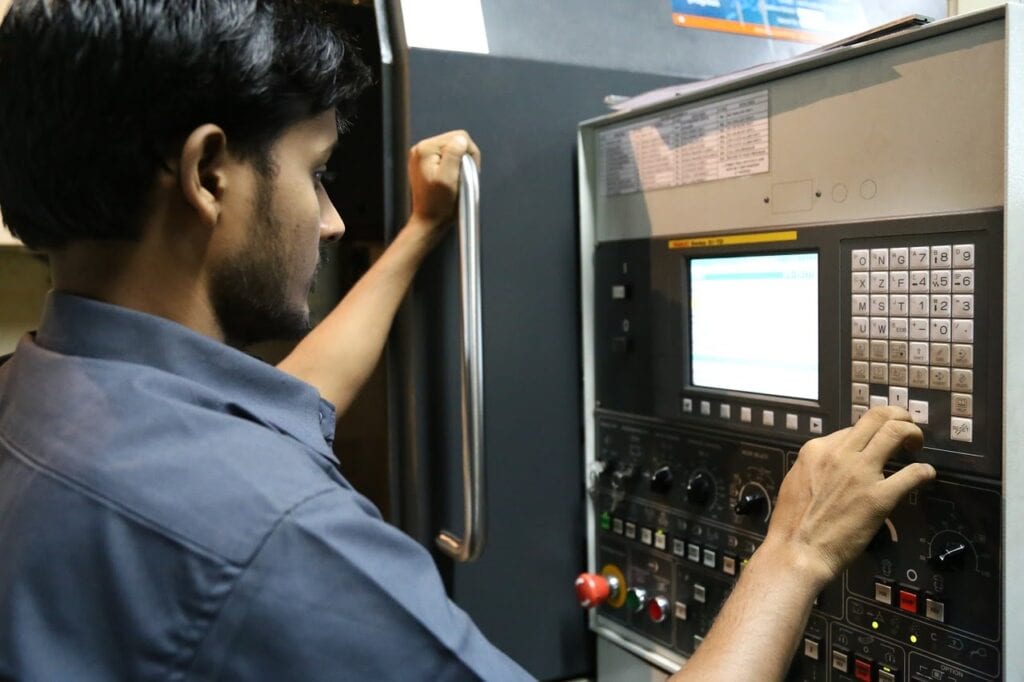
Enrolling in a course is a great way to advance your understanding of a subject. Today, we have many opportunities to gain knowledge and advance our skills.
Many universities offer in-person or online courses that you can enroll in for low costs, or for free. These courses can act as stepping stones in your path to becoming a CNC machinist.
Best Online CNC Classes
Many websites such as Coursera, Udemy, and EdX offer online classes on a wide variety of subjects. Below are some of the CNC classes from these massive open online course providers that you can enroll in today.
Coursera
- Course: Introduction to CAD, CAM, and Practical CNC Machining
- Where: Online
- Time: 25 hours
- Prerequisites: None
- Price: $39 to $79 per month
This course will provide you with foundational knowledge in computer design, manufacturing, and practical usage of CNC machines. The course will cover CNC machining basics that will help you build knowledge from the ground up.
Udemy
- Course: CNC cutting tools, and machining techniques
- Where: Online
- Time: 3 hours
- Prerequisites: None
- Price: $24.99
This introductory to intermediate level course is meant for students who want to learn the basics of cutting tools. It will teach you how to set cutting data based on your materials and the operational requirements of the machinery. You will also learn efficient machining techniques.
CamInstructor
- Course: CNC Programming Online Course
- Where: Online
- Time: 12-month access
- Prerequisites: None
- Price: $275
This self-guided course is great for anyone interested in gaining CNC programming knowledge. It is also ideal if you are preparing for the IMs Certification Test. In this course, you will get introduced to CNC codes and will learn how to create CNC programs.
Students will also learn about specific concepts and tools such as CNC Lathes, drilling with canned cycles, linear interpolation, and tool nose compensation.
Best Free CNC Courses
Let’s now take a look at some of the best free CNC courses online.
G-code Tutor
- Course: G-Code programming lesson
- Where: Online
- Time: 20 minutes
- Prerequisites: None
- Price: Free
In this course, the instructor gives a demonstration of how to program CNC machines. Students will get a step-by-step, visual breakdown of how to program drilling cycles for a CNC milling machine. All concepts are explained in detail. You should enroll in this course if you want to learn more about G-Code and improve your CNC programming skills.
JARC
- Course: CNC Machinist Fast Track
- Where: Online
- Time: 20 weeks
- Eligibility: Free training for unemployed adults and low-income job seekers
This course doubles as a job training program. Students will learn how to write programming codes and instructions to operate a computer-controlled machine.

"Career Karma entered my life when I needed it most and quickly helped me match with a bootcamp. Two months after graduating, I found my dream job that aligned with my values and goals in life!"
Venus, Software Engineer at Rockbot
You can sign up at any time, as the classes are conducted on an open enrollment schedule. There are both day and evening training sessions available to suit your schedule.
If you complete this course, you will gain industry credentials through the National Institute for Metalworking Skills (NIMS), and will also be able to take advantage of the program’s job placement services.
Best CNC Books
Reading books is not only a great habit but also one of the best ways to broaden your skill set. Below are a few books you can browse to increase your understanding of CNC.
CNC Router Essentials: The Basics for Mastering the Most Innovative Tool in Your Workshop, Randy Johnson
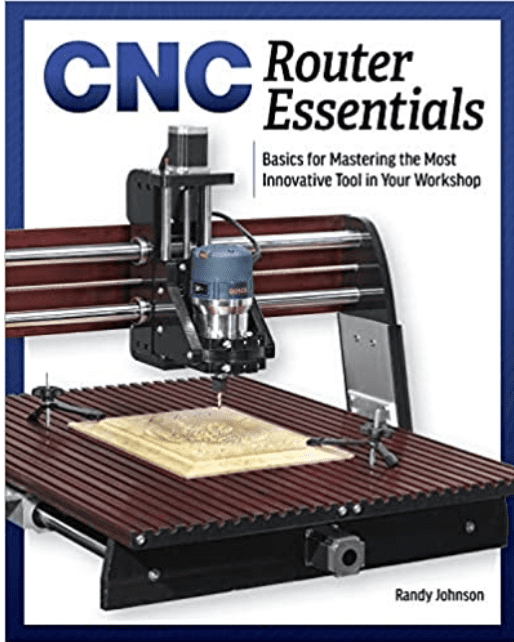
In this book, the author teaches how to use CNC in conjunction with woodworking machines. Topics covered include toolpath basics, machine setup, and project design essentials. The book also features 2D and 3D practice projects and a reference gallery for inspiration.
Getting Started with CNC, Edward Ford
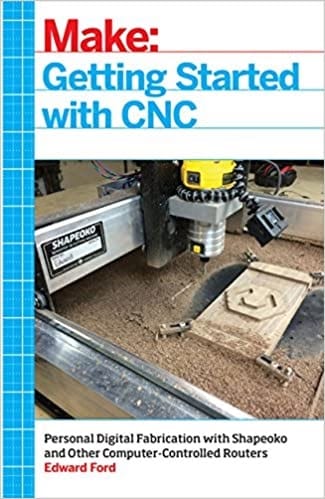
In this book, Edward Ford, the co-founder of CNC machine producer Carbide 3D, covers the basics of designing with CNC machines. The book teaches readers how to make durable pieces with aluminum, wood, and other materials.
CNC Programming Handbook, Peter Smid
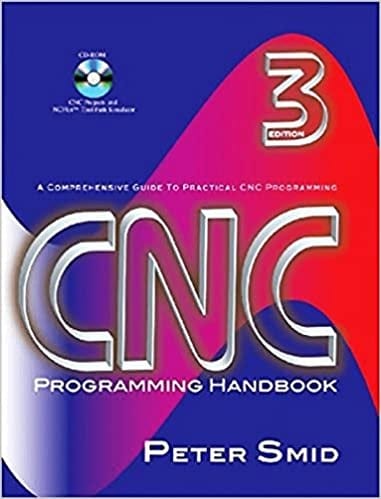
This book contains great training tips for CNC programming. It comes with a CD that contains a 15-day shareware version of the CNC tool path editor/simulator, NCPlot. The text also has extensive chapters on CNC lathes and includes examples.
Best CNC Certifications
Getting a CNC certification will help you stand out from the crowd as a qualified CNC operator. Certification will ensure that you have the necessary skills to properly and safely operate a CNC machine.
Haas CNC Certification Program
The Haas CNC certification program is designed to equip you with the knowledge needed to get started as an operator or machinist. The program covers the fundamental knowledge of machine processes and teaches you how to safely handle machines.
Once you have completed the program, you must also take a test to get your certification. Haas currently offers two certifications: Haas basic mill operator and Haas basic lathe operator.
NIMS
NIMS credentials are intended for students and professionals who demonstrate an exceptional understanding of CNC and want to gain a competitive edge in the workforce. In addition, staff who works in emergency management operations must have a NIMS certification.
Best Online CNC Resources
Apart from books and courses on CNC, you can also find many resources offering free information on CNC, such as websites, blogs, and articles. Below are some of the best online resources you may want to bookmark for future reference.
CNC Cookbook

CNC Cookbook is one of the best resources on the Internet for top-quality free information on CNC. You can even sign up for their regular emails to get resources sent directly to your inbox. On the website, there are many beginner and hobbyist courses, such as a DIY CNC machine guide, a G-code cheat sheet, and a hole-making guide.
It also has a range of resources for experts and professionals, such as a G-code programming course, a complete guide to fixture plates, and a list of the best CNC tips and techniques.
3D Hubs
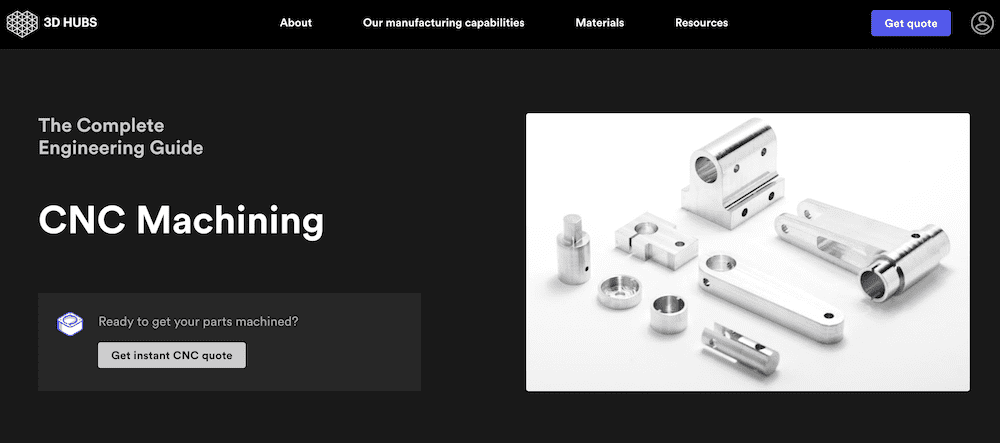
This website offers many useful resources for both beginners and advanced CNC enthusiasts. CNC machining: The Complete Engineering Guide will cover all the essentials of CNC in just 25 minutes.
The website also separates the different parts of CNC into short and easy to grasp snippets. On it, you will also find diagrams accompanied by text to help you get a full understanding of the subject.
Should You Study CNC?
If you love working with computers and machines and aspire to create your own innovative designs, CNC might be a good area of study for you. According to the US Bureau of Labor Statistics, the average employment of machinists is expected to grow three percent between 2019 and 2029.
The bureau listed the median annual salary of a CNC machinist at $44,420 in May 2019. So if you want a secure job in a machinery-related sector, learning CNC could pay off.
About us: Career Karma is a platform designed to help job seekers find, research, and connect with job training programs to advance their careers. Learn about the CK publication.



